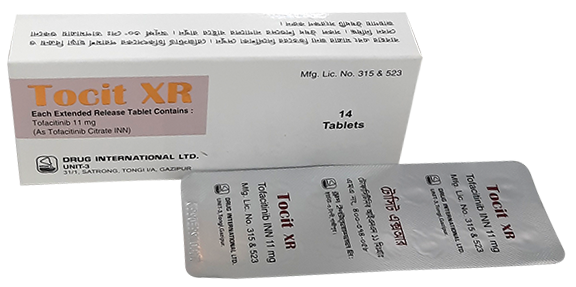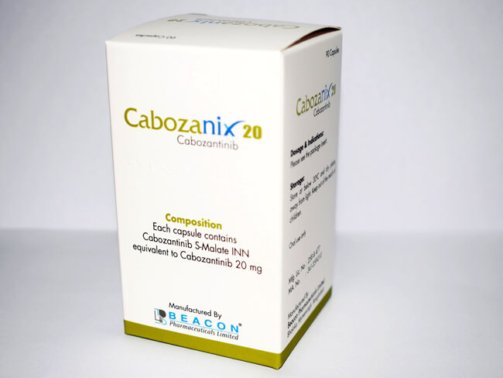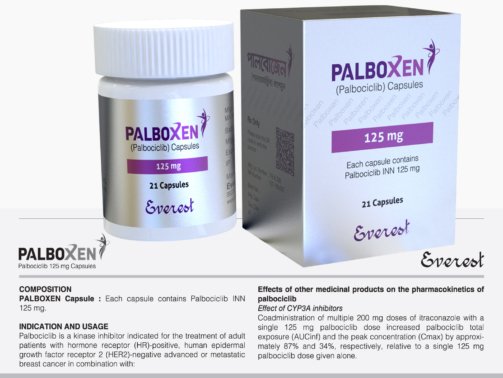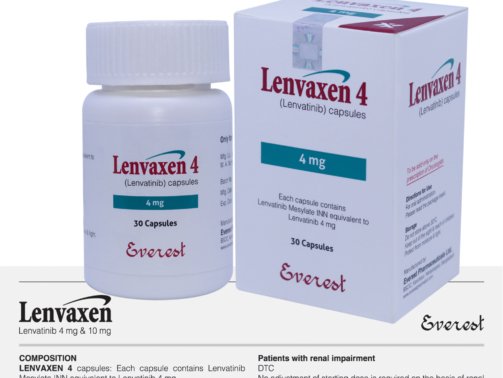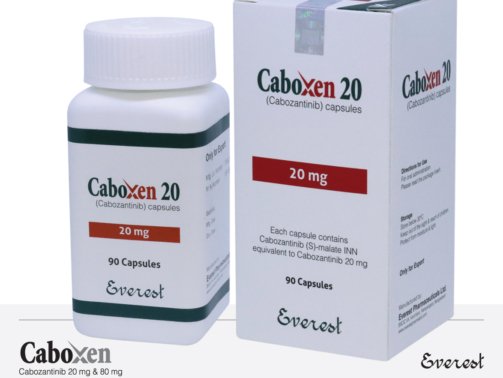Tofacitinib 11 mg (Xeljanz)
0.00$
Containing tofacitinib, TOCIT-XR Tablet acts as an inhibitor of Janus kinases (JAKs). These enzymes are pivotal in the signaling pathways of numerous cytokines and growth factors involved in inflammation. Tofacitinib’s inhibition of JAKs modulates immune responses, diminishes inflammation, and relieves symptoms linked with inflammatory disorders.
The prescription drug tofacitinib, which is sold under the brand name Xeljanz, is mainly used to treat specific autoimmune diseases. It is a member of the class of medications called Janus kinase (JAK) inhibitors, which function by preventing the body’s inflammatory processes from being facilitated by the action of certain enzymes (JAK1, JAK2, and JAK3). Tofacitinib helps control the symptoms of autoimmune disorders, in which the immune system unintentionally targets healthy tissue, by lowering inflammation.
When opposed to the more popular 5 mg tablet, which is normally taken twice daily, the 11 mg dose form of Xeljanz is usually administered once daily, offering patients a more convenient treatment alternative.
Indications and Approved Uses
FDA-approved tofacitinib 11 mg (Xeljanz) is frequently given to treat the following conditions:
RA, or rheumatoid arthritis
Adults with moderate to severe active rheumatoid arthritis who have not responded well to methotrexate or who have developed an intolerance to it can be treated with Xeljanz. It may decrease the advancement of the condition and assist alleviate stiffness, edema, and joint pain.
Arthritis Psoriatica (PsA)
Adults with active psoriatic arthritis who have not reacted well to prior disease-modifying antirheumatic medications (DMARDs) may also benefit from it.
Adults with moderate to severe ulcerative colitis frequently take Xeljanz 11 mg, especially when traditional treatments like corticosteroids, azathioprine, or anti-TNF medications don’t work.
In some areas, ankylosing spondylitis (AS)
Tofacitinib has demonstrated promise in clinical trials and is occasionally used off-label under specialized care, despite not being approved in all countries for AS.
Mechanism of Action
Janus kinase enzymes are specifically inhibited by tofacitinib. These enzymes are essential to the signaling cascade that controls the function of immune cells. The immune system is hyperactive and overproduces inflammatory cytokines in autoimmune disorders. Tofacitinib suppresses this reaction by inhibiting the JAK pathway, which lowers inflammation, joint damage, and associated symptoms.
Dosage and Administration
You can take the Tofacitinib 11 mg (Xeljanz) extended-release tablet with or without food once a day. In contrast to the immediate-release 5 mg tablets, which need to be taken twice daily, this formulation is made to keep steady drug levels in the bloodstream throughout the day, providing patients with a more practical method of taking their prescription drugs.
Patients should not chew, split, or crush the 11 mg pill; instead, they should swallow it whole. Following the suggested regimen is essential to achieving the optimum results and lowering the likelihood of side effects.
Possible Side Effects
Like all medications, tofacitinib may cause side effects. Some of the common and serious side effects include:
Common Side Effects:
Headache
Diarrhea
Nasal congestion or upper respiratory tract infections
High blood pressure
Serious Side Effects:
A higher chance of developing severe infections (such TB, bacterial, fungal, or viral infections)
Blood clots in the lungs or legs
Heart-related issues including heart attack and stroke
Certain cancers, especially lymphomas
Liver enzyme elevation and blood test abnormalities
Routine blood tests are often required to monitor white blood cell counts, liver enzymes, and cholesterol levels while taking Xeljanz.
Precautions and Warnings
Patients should let their doctor know about any of the following before beginning tofacitinib 11 mg:
Medical history of recurring or chronic infections
Liver illness
Cancer or cancer risk factors
excessive blood pressure, excessive cholesterol, or heart disease
History of blood clots or pulmonary embolisms
Recent immunizations (avoid live vaccines while undergoing treatment)
Tofacitinib may decrease the immune system, increasing an individual’s susceptibility to infections. Patients must notify their healthcare provider right away if they experience any infection-related symptoms, such as fever, cough, chills, or sore throat.
Drug Interactions
There may be drug interactions with tofacitinib. Notably:
Immunosuppressants, such as cyclosporine and azathioprine, may make infections more likely.
Strong CYP3A4 inducers (like rifampin) or inhibitors (like ketoconazole) can change how well a medication works.
Because of the higher risk of immunosuppression, biologic treatments for autoimmune illnesses (such as etanercept and adalimumab) should often not be administered in combination.
While taking Xeljanz, always get medical advice before beginning any new supplement or drug.
Conclusion
For individuals with autoimmune diseases such rheumatoid arthritis, psoriatic arthritis, and ulcerative colitis, tofacitinib 11 mg (Xeljanz) is a potent and practical therapy choice. Its once-daily formulation enhances quality of life, effectively manages inflammation, and increases adherence. However, because of the possibility of severe adverse effects and interactions, it needs to be used under close medical supervision. For Xeljanz to be used safely and effectively, regular monitoring, open contact with healthcare practitioners, and following to instructions are essential.
Order Now At Mdx Pharma bd….
To order from MDX Pharma BD, visit their website at https://mdxpharmabd.com, where you can browse products and place orders online. For inquiries or orders via email, contact emedicarepharma@gmail.com. Alternatively, call (+88) 01929123476. Their address is 29, Abdullahpur, Uttara, Dhaka-1230, Bangladesh.
1. What is the purpose of Tofacitinib 11 mg (Xeljanz)?
Tofacitinib is used to treat autoimmune conditions like:
RA, or rheumatoid arthritis
(PsA) psoriatic arthritis
It lessens joint damage, inflammation, and the symptoms of ulcerative colitis (UC).
2. How does Tofacitinib work?
Tofacitinib is a Janus kinase (JAK) inhibitor. It blocks specific enzymes involved in the immune system’s inflammatory process, helping to reduce immune overactivity in autoimmune conditions.
3. What is Tofacitinib 11 mg’s suggested dosage?
Tofacitinib extended-release 11 mg once daily is frequently prescribed for ulcerative colitis. Depending on the formulation and patient profile, the standard dosage for RA or PsA is either 5 mg twice daily or 11 mg once daily (extended-release).
4. Is tofacitinib safe to consume while nursing or pregnant?
Because it could affect the fetus or baby, tofacitinib is not advised during pregnancy or while nursing. Effective contraception should be used by women of reproductive age both during and after treatment.
5. What should I do if I forget to take a dose?
Unless it’s almost time for your next dose, take the 11 mg dose of tofacitinib as soon as you remember if you miss it. Never take two doses to make up for one you missed.
| Product Name | TOCIT-XR Tablet |
|---|---|
| Generic Name | Tofacitinib (INN) |
| Formulation | Extended-Release Tablet |
| Available Pack Size | Typically available in packs of 30 tablets |
| Available Strength | 11mg |

 Cart is empty
Cart is empty 